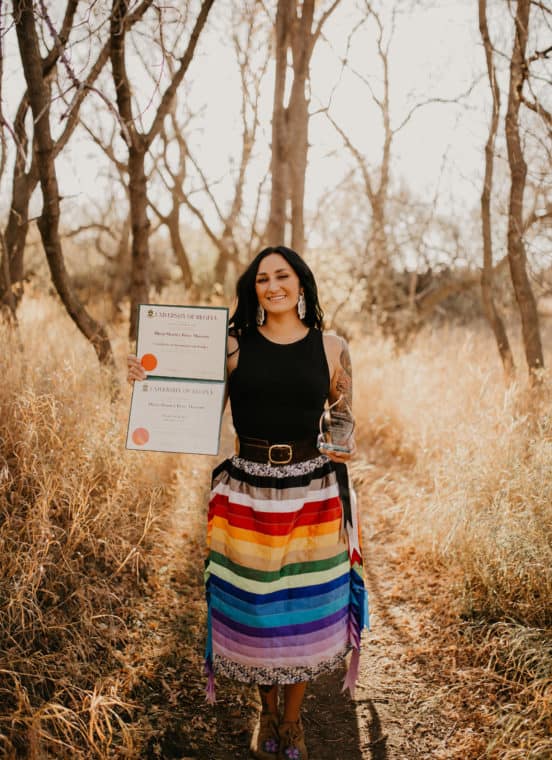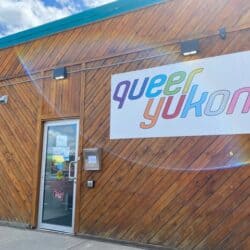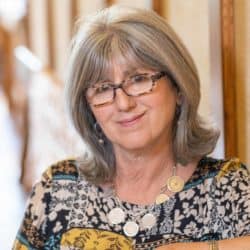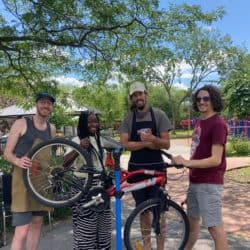Grassroots organizations are an integral part of the non-profit sector, responding to needs and shaping how communities care for each other. This profile, the fourth in a series, looks at how two sisters, starting with a podcast aimed at amplifying Indigenous voices from across Turtle Island, followed by a meal program to help the residents of a homeless encampment in Regina, are helping urban Indigenous youth reclaim their culture.
Every Sunday afternoon in Regina, Saskatchewan, around 300 free meals made with wild meat and served with bannock are given out in two city parks. Dubbed “Soupbowl Sundays,” the program is just one of the ways the non-profit Comeback Society is helping reconnect urban Indigenous communities with their culture through food sovereignty.
“One of my fondest memories growing up was eating soup and bannock at my aunties’, uncles’, and kokum’s [grandmother’s] houses,” says Alicia Morrow, who co-founded the Comeback Society with her sister, Lexie Obey. “It was a comfort meal, surrounded by conversation and a kinship that goes so deep.”
One of my fondest memories growing up was eating soup and bannock at my aunties’, uncles’, and kokum’s houses.
Alicia Morrow, Comeback Society
The sisters first started the Comeback Society during COVID as a podcast to amplify Indigenous voices from across Turtle Island, gaining a steady following of listeners who related to the stories of reclamation and resilience. In the fall of 2021, Morrow and Obey began brainstorming ways they could help the residents of Camp Hope, a homeless encampment in Pepsi Park with a high population of Indigenous residents. Recalling the comforting meals of their youth, they decided to fundraise to provide a meal for the encampment. Calling on the podcast’s social media following, in a week they raised $4,000, which went toward the meal and supplies for the camp.
After the camp was disbanded, the weekly food program continued. In its first year, the Comeback Society gave out 14,000 meals, and Morrow estimates that 90% of the people they serve are Indigenous.
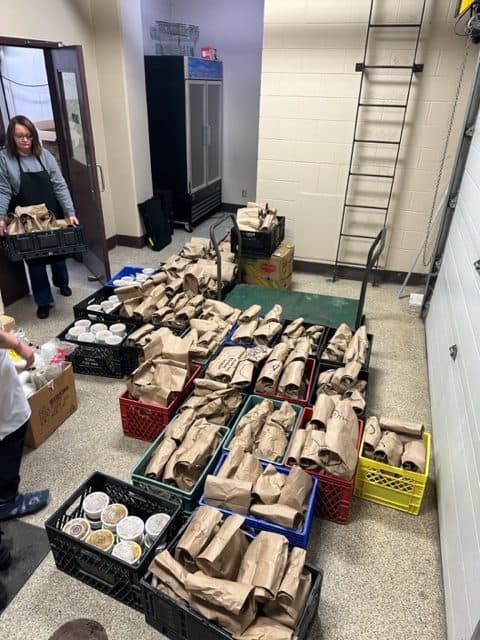
Morrow, who has experience working in non-profits, has partnered with other non-profits and local businesses. The Comeback Society, which now boasts more than 60 volunteers, prepares all its meals out of the Regina Food Bank’s industrial kitchen and receives food donations from local businesses, including COBS Bread and Sinfully Sweet bakery.
The food for the meal program is covered by donations from the Regina Food Bank and local businesses. The rest of the Comeback Society’s funding comes from social media callouts and hosting land acknowledgement workshops for companies.
Morrow, who has experience working in non-profits, has partnered with other non-profits and local businesses.
During one Soupbowl Sunday last year, Morrow started chatting with some of the meal-program participants about the high levels of food insecurity and poverty in the city among Indigenous communities. “We were talking about how, back in the day, we didn’t have these issues. Back in the day we harvested all our own food,” she says. “But how do we do that now?”
That conversation prompted Morrow to start thinking about food sovereignty and launched the Comeback Society’s new two-year goal: to become fully self-sustainable by using only wild meat and growing their own vegetables. To kick off that vision, Morrow reached out to her First Nation, Peepeekisis Cree Nation, and asked if they could harvest a buffalo for the meal program. Headman Allan Bird, who tends to the herd, immediately said yes. The non-profit’s first annual buffalo harvest was in October 2022, and the meat is fuelling the food program through the winter months.
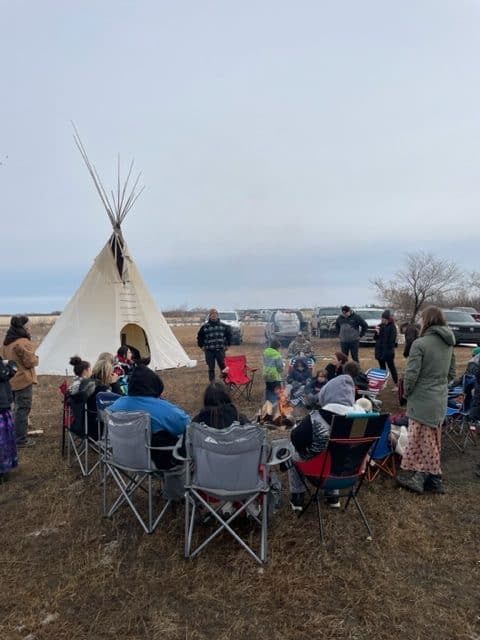
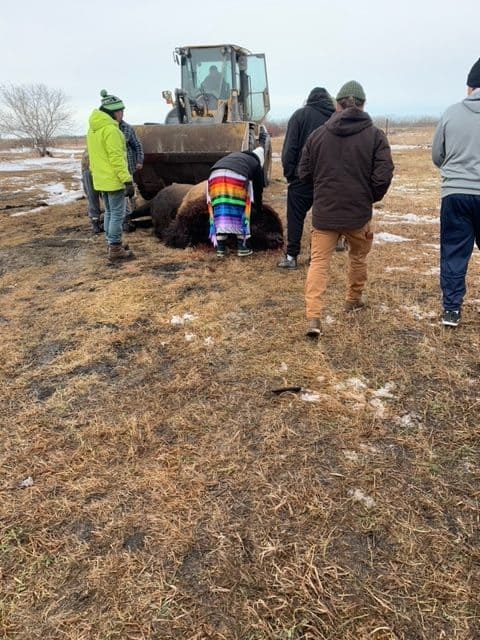
While food sovereignty is one of the pillars of the Comeback Society, the non-profit also offers programs to help urban Indigenous youth reclaim their culture. They’ve offered powwow dance classes and ribbon-skirt sewing workshops and have partnered with Regina’s MacKenzie Art Gallery for a three-day interactive arts program led by Indigenous artist Faye HeavyShield.
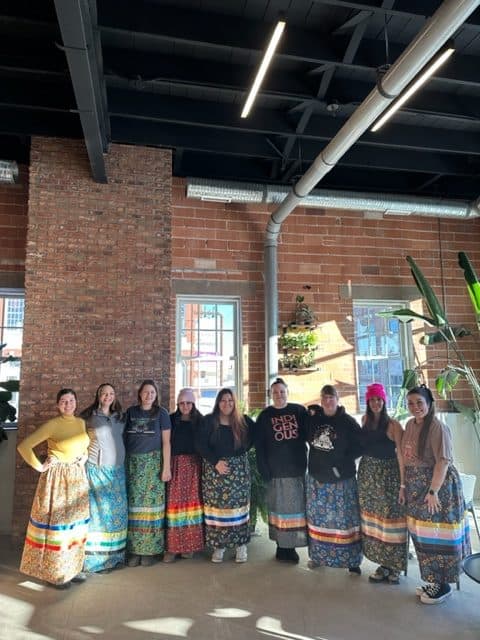
Morrow says she hasn’t applied for any government grants to fund the various programs yet, noting her desire to maintain Comeback’s ethos as “for the community, by the community.” But she recognizes that to achieve her ambitious goals, she’s going to need to expand to other funding models.
I want to create a space where my son will feel proud to be Indigenous.
Alicia Morrow
Morrow’s five-year goal is to open a healing lodge, where Indigenous people will have a space to reconnect with their culture, learn their language, and participate in ceremonies. She dreams of creating a place where her son can feel represented and celebrate his culture.
“Growing up, my sister and I wished there were spaces for us to learn our culture because we didn’t have that access. My mom was in the Sixties Scoop, and my dad was in residential school. We didn’t have a place to go,” Morrow says. “I want to create a space where my son will feel proud to be Indigenous.”
